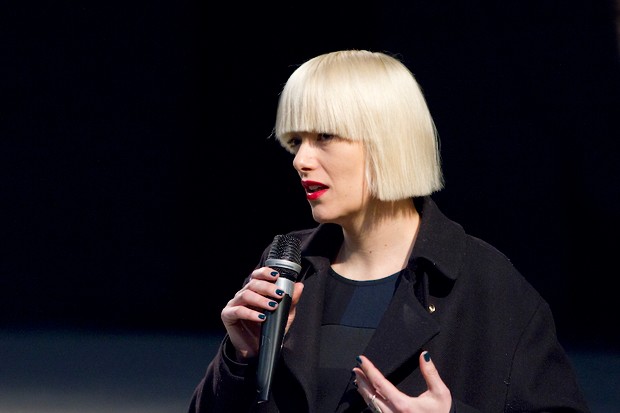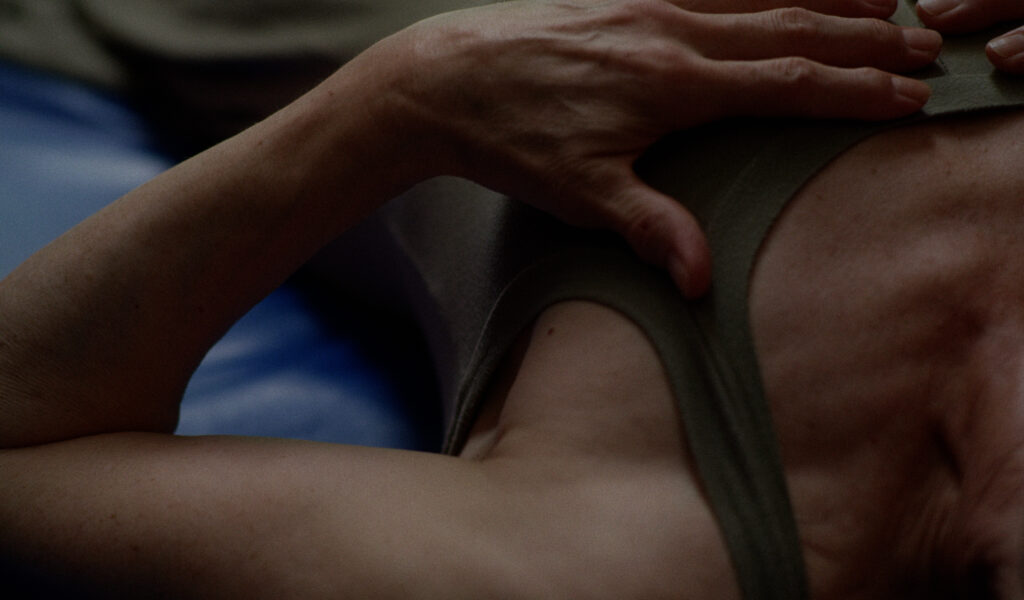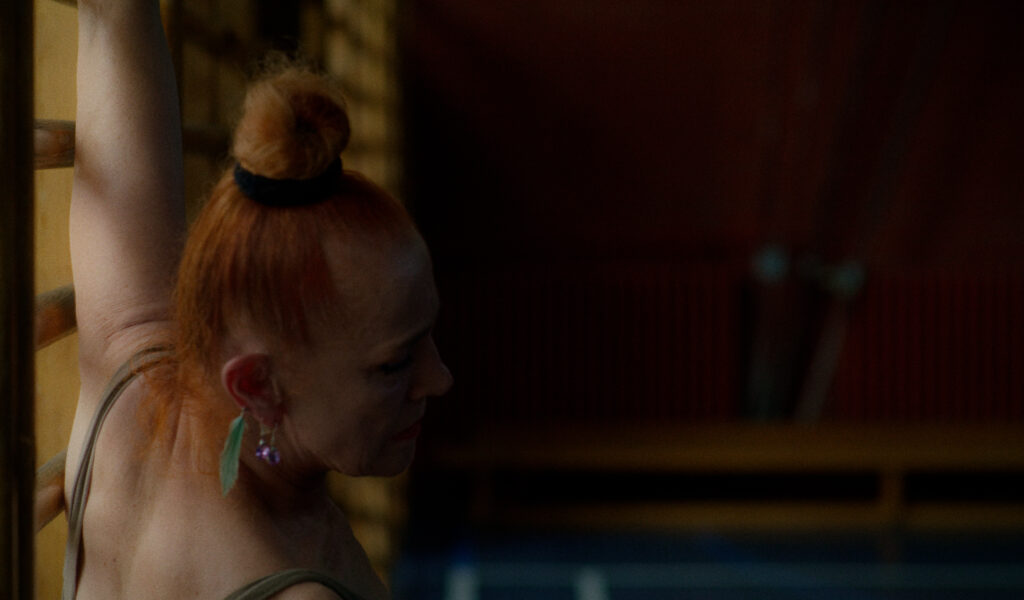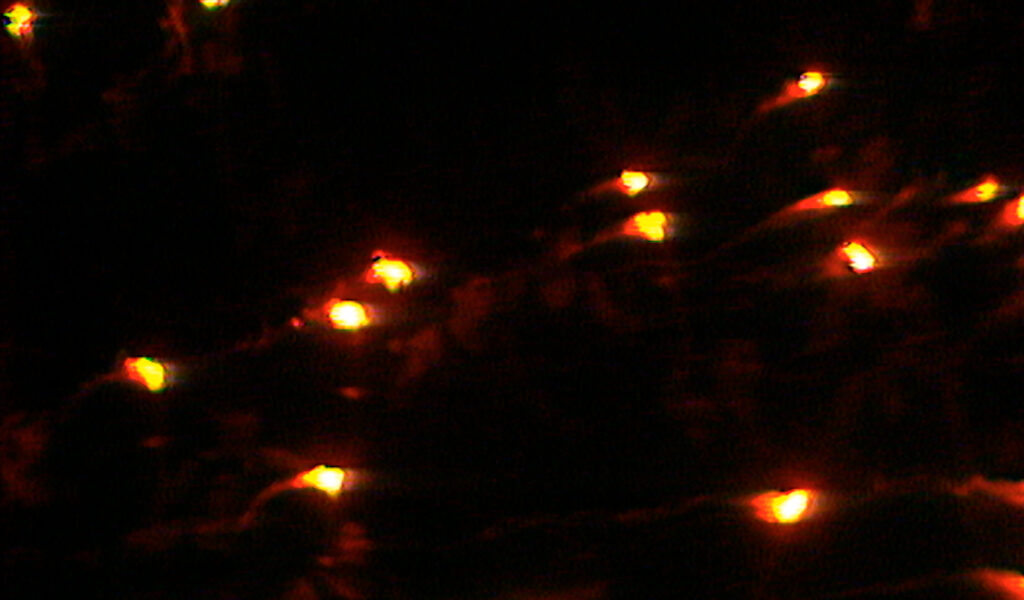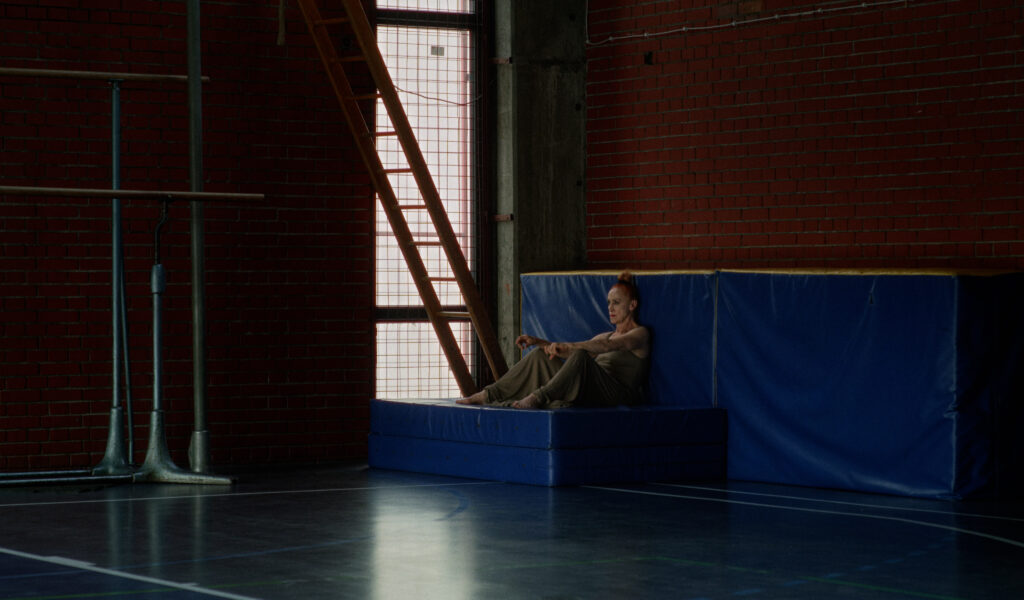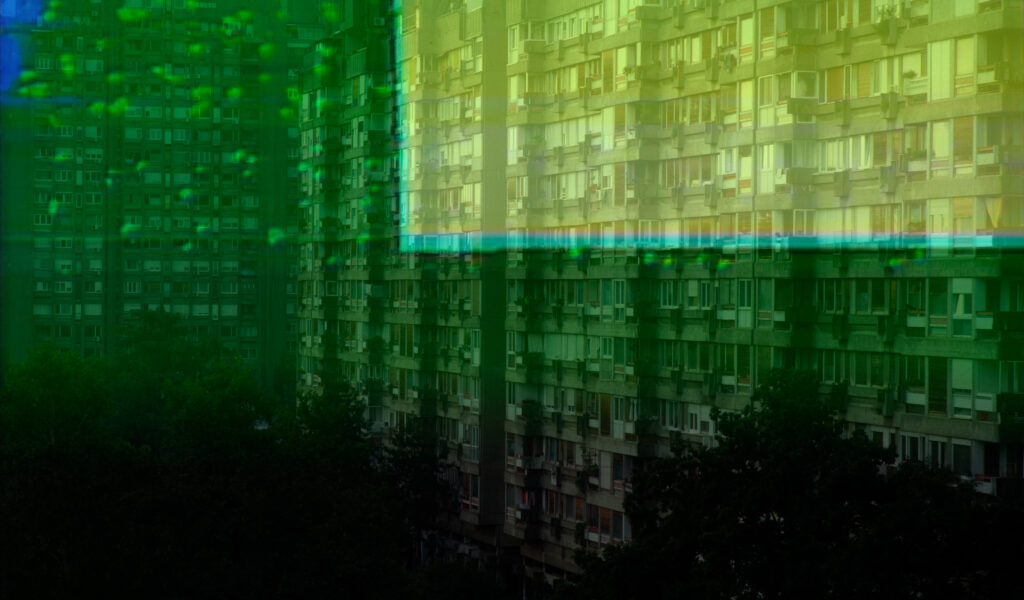
Slet 1998
Germany / France / Serbia
22'
- Synopsis
- Curatorial presentation
74-year-old dancer Sonja Vukićević moves through socialist-modernist spaces, her body echoing Yugoslavia’s last mass performance. Intertwined with a teenage girl’s diary from 1988, the film traces the shift from socialist collectivism to rising nationalism.
All throughout her work in cinema, Marta Popivoda has attempted to reconstruct the shattered image of a nation that ceased to exist: Yugoslavia. Among her leitmotifs is the analysis, in almost a literal sense, of what Siegfried Kracauer called the “mass ornament” – the large-scale sports and choreography displays staged annually by socialist regimes, called “slet” in Serbian, which emphasised popular, cultural, and ideological unity. Focusing here on the last slet that took place before the country’s collapse, and adding a unique layer of autofictional reconstructions (the filmmaker is, above all, a documentarian), Popivoda discovers in her almost microscopic analysis the first cracks in the structure that is about to collapse. The images from this final performance are absolutely breathtaking. (Flavia Dima)
